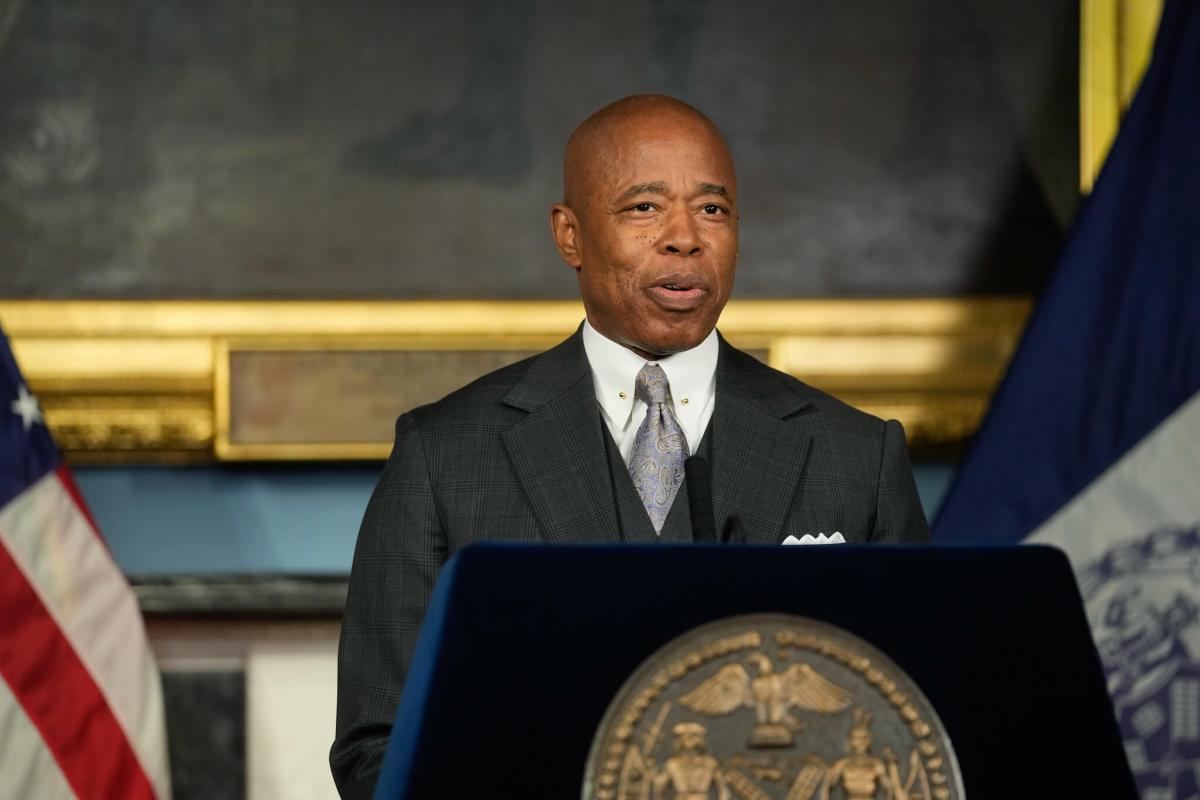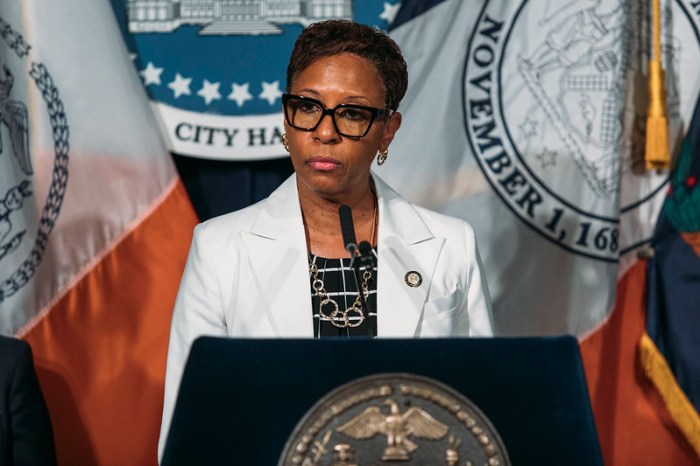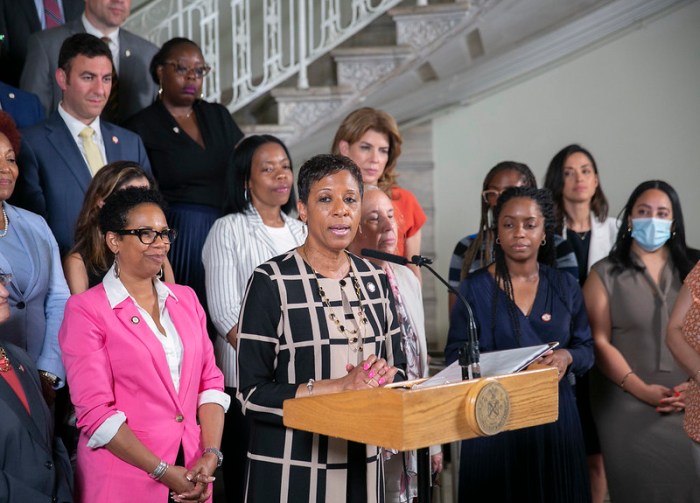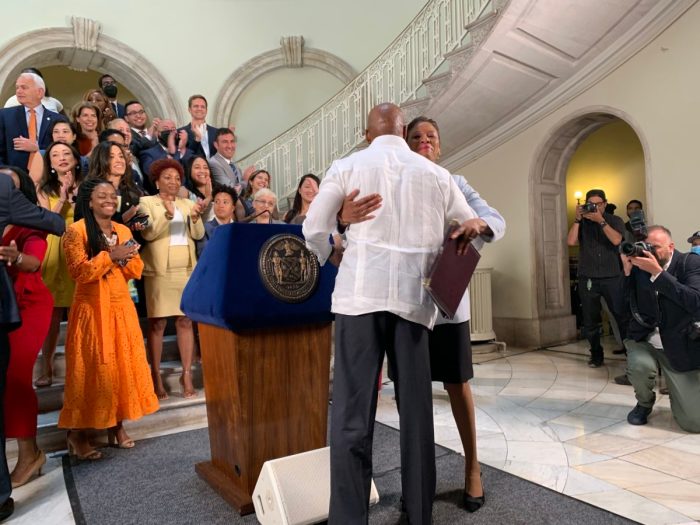A federal judge on Friday scheduled a Monday afternoon hearing for the first legal challenge against Mayor Eric Adams’ recent directive to start forcibly hospitalizing more people who appear to be severely mentally ill.
The motion for a temporary restraining order on the mayor’s plan, which he announced late last month, was filed in a Manhattan federal court Thursday morning by Beldock Levine & Hoffman LLP, New York Lawyers for the Public Interest (NYLPI) and other attorneys. It was brought on behalf of plaintiffs including individuals like Justin Baerga and Steven Greene and advocacy groups such as the National Alliance on Mental Illness of NYC (NAMI-NYC) and Community Access.
“Plaintiffs in the Baerga lawsuit, who requested that the federal judge immediately halt the city’s illegal ‘Involuntary Removal Policy’ of people with mental disabilities, are pleased to announce that the judge will be handling the urgent request on an expedited basis and has ordered the parties to appear before him on Monday,” NYLPI said in an emailed statement to amNewYork Metro.
Judge Paul Crotty set the hearing for 3:30 p.m. on Monday.
The mayor’s directive instructed police, fire and EMS workers – as well as health care professionals – to start involuntarily bringing to a hospital anyone who appears to be a danger to themselves due to an inability to care for their “basic needs.”
The filing charges that Adams’ plan is unconstitutional and violates several civil rights protections for people with disabilities, including the Americans with Disabilities Act (ADA) as well as the state’s Mental Hygiene Law, which the mayor’s administration believes gives it grounds for the forced removals.
“The newly announced ‘Involuntary Removal Policy’ not only violates New York’s Mental Hygiene Law, but it discriminates against individuals by treating them differently simply because of their actual or perceived mental disability,” the filing read.
Marinda van Dalen, an attorney with NYLPI, said the directive will lead to more violent interactions between the NYPD and those suffering from mental illness, particularly in Black and brown communities.
“New York City’s reliance on the police as first responders when someone is experiencing a mental health crisis has already resulted in police killings of too many people, the majority of whom are Black or other people of color,” van Dalen said in a statement.
“The new involuntary removal policy doubles down on decades of failed, police-centered City mandates just when we should be creating health-centered supports for people with mental illnesses.”
The filing is part of an ongoing federal class action lawsuit challenging the city for continuing to use police officers on the frontlines of its response to those experiencing mental health crises. The suit was brought late last year during the waning days of former Mayor Bill de Blasio’s administration.
“This lawsuit has been pending for a year and we felt the need to take further legal action to halt sweeping involuntary hospitalizations and prevent further harm towards New Yorkers living with serious mental illness and their families,” said Matt Kudish, chief executive of NAMI-NYC.
From the moment Adams unveiled his directive, it seemed almost inevitable the plan would be met with legal challenges.
Many have criticized the plan for what they charge is a lack of clarity around how the NYPD will determine who to forcibly commit to hospitals. Concerns have also been raised about whether the police should be involved in responding to mental health crises at all and if the city has enough psychiatric beds to handle a surge of new patients being brought in for evaluation.
One vocal critic of the directive has been City Council Speaker Adrienne Adams, who on Wednesday called it more of “an idea” than a “comprehensive plan.”
“What we see right now in the council is an idea,” the speaker said at the time. “What we’d like to see as a plan. We have not seen that yet.”
Nicholas Paolucci, the spokesperson for the city Law Department, maintained in a statement to amNewYork Metro that the mayor’s directive “fully complies” with state and federal law.
“Mayor Adams’ compassionate plan to connect New Yorkers with severe mental illness to support and care fully complies with federal and state law, and we look forward to making our case before the court,” Paolucci said.


































